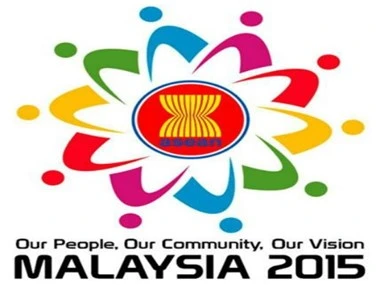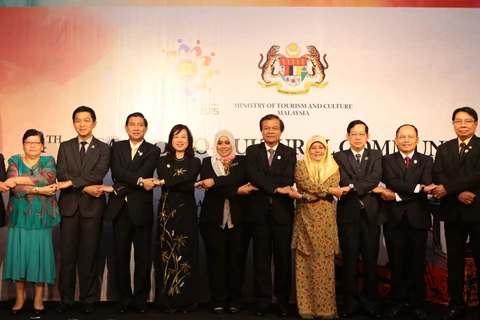The Ministry of Labour, Invalids and Social Affairs (MoLISA) gathered opinions to the building of an implementation plan for the goals of the ASEAN Socio-Cultural Community (ASCC), which is part of the soon-to-be ASEAN Community.
A blueprint for realising the ASCC goals by 2025 has been drafted by the MoLISA and relevant ministries and sectors, as heard at the MoLISA’s workshop in Hanoi on October 21.
It reviews laws, policies, programmes, strategies and standards along with the implementation organisation with regard to the ASCC’s goals and measures, considers appropriate execution measures, and suggests amendments to existing laws and policies in order to carry out the goals.
The draft also intends to ramp up communication activities to improve public awareness of the ASCC, and devise mechanisms to mobilise resources for the ASCC building.
Workshop participants said ASEAN is working to set up a common Community on December 31 this year. Under the ASEAN Community’s Post-2015 Vision, the bloc’s member nations will be outward looking, living in peace, stability and prosperity, and bonded together in partnership in dynamic development.
To that end, the regional countries devised the blueprints of the ASEAN Political-Security Community, ASEAN Economic Community and ASEAN Socio-Cultural Community. The ASCC Blueprint focuses on building an inclusive, sustainable, resilient, and dynamic ASCC that engages and benefits its people.
Attendees urged the member countries to actively promote initiatives and integrate so as to fuel regional efforts, combine national priorities in ASEAN integration, and devise policies in line with the development of the ASEAN Community.
They recognised Vietnam as an active and responsible player in ASEAN cooperation through proposing scopes of partnership and taking into account the Community’s content and direction when devising its national plans and programmes.
The workshop was part of a project on integrate gender equality into laws and policies towards sustainable employment funded by the Spanish Government.-VNA
























